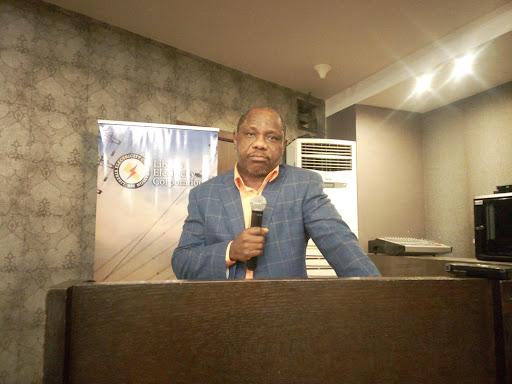Liberia: ‘Gov’t Committed to Ending Electricity Nightmare’

Minister Tweh: “We have to fix the energy sector. All government entities are on board to work together to make the energy sector viable.”
— Says Finance Minister Tweah; announces allocation of US$65M for this year and next year to obtain CLSG
The Minister of Finance and Development Planning, Samuel Tweah, has reiterated the government's commitment to ending the cycle of insufficient electricity during the dry season.
Tweah added that the government has proposed to the legislature a budget of approximately US$20 million in the recast budget for both LEC and CLSG as a means of making electricity available everywhere.
“The total amount we are committing [is] around US$65 million for this year’s and next year’s to bring the CLSG here in Liberia to help reduce the burden on the LEC.”
“We have to fix the energy sector. All government entities are on board to work together to make the energy sector viable,” Tweah announced during a July 15 event the departure of ESB International, which has managed LEC since 2018. “The president had a meeting with the development partners recently and assured them of a plan to turn the energy sector around.”
“We have to end that cycle because we cannot continue to depend on rainy seasons for our people to get sustainable electricity. We are committed to ending that cycle, and very soon we are looking at a long-term project via the dam.”
The Finance Minister, however, stated that while the government is contemplating increasing the power grid at Mount Coffee to meet the growing needs of Liberians, the issue of power theft is a menace to LEC’s operations, as such, consumers have to desist and be committed to paying bills.
According to him, about 100,000 new meters are on their way to Liberia to alleviate the meter shortage problem, and pretty soon LEC will become a cash cow because the government is very determined to increase the megawatt output at Mount Coffee Hydro Power Plant.
Tweah added that LEC now has the capacity to provide around 20 percent energy to Liberians but that capacity is expected to increase soon.
“If anybody or government official intends to interfere with the new management, anybody with the government wants to support the basis of power theft; you have no business with this government, you will be out,” Tweah warned.
“Through the combination of the legislation of the power theft law, any cartel or collusion that exists anywhere that will want to thwart LEC’s efforts will be crushed through the power theft law to its core. The government will be very firm and strong to crack down on power theft. President Weah has already committed to that.”
“We pledge to the new administration very soon we will declare that we owe you nothing and you will owe us. We intend to start with a clean slate. We want to clear our obligation to you and bring it to zero. The new management has to start on that zero footing and put into place a new program to move forward.”
He urged the new management team to build on the basis that ESBI has laid. “You are standing on the shoulders of your forerunner. You don't make fun of it. Why was my predecessor so successful? How were these issues resolved? To advance, you stand on that and build upon it. LEC has been given a solid foundation by ESBI.”
Tweah said the complicated problems that need to be resolved at the LEC should be based on the collective will of the LEC personnel and employees rather than on the Managing Director, Chairman of the Board, or President of Liberia.
He said with collectiveness, the new management can solve any problem at the LEC, coupled with the political will of the President, who has committed his government to support the LEC. With the political will the President has availed, we are working with the MCC, the 10-year commitment from the World Bank, and we can build on the foundation the ESBI has laid for the LEC.
He disclosed that to increase investment in the energy sector, the government is collaborating with the Millennium Challenge Corporation (MCC) to obtain the second compact.
“Liberia will receive the second compact because we are making every effort to reclaim it because we genuinely want to see the energy sector expand to meet Liberians’ expectations. ESBI is an advisor emeritus because of its knowledge of the Liberian energy market. To identify the successes and upcoming issues, a consultant was recruited by the LEC, and today a post-ESBI assessment was conducted. You will have to manage whatever US dollar that was paid here. We are looking at post-compact performance.”
Tweah, who also spoke on the government's behalf, praised the ESBI team for a remarkable job well done. “The energy sector faces several difficulties; you are leaving after imparting a wealth of knowledge to the LEC management and team. That narrative must be shared. You have set a tremendously strong platform for the incoming management. We are grateful,” he said.
“Sometimes we blame LECs with problems that are not LEC’s. I can see in you, ESBI, the hunger to finish the success you have achieved at the LEC. You have laid an incredible foundation at the LEC, and I have no doubt the incoming team will build on them to grow the LEC. You have done the hardest job, the elements are there. Sometimes you work hard; the next guy who comes after finishes it,” said Tweh.
“LEC has serious problems. Power generation is a challenge. The success the LEC has had in a short period has made it a victim of its successes. The number of clients is greatly increasing, but there is not yet enough capacity to accommodate all of their needs. Therefore, the LEC management team will make use of all the technical knowledge that the ESBI has provided,” he concluded.
